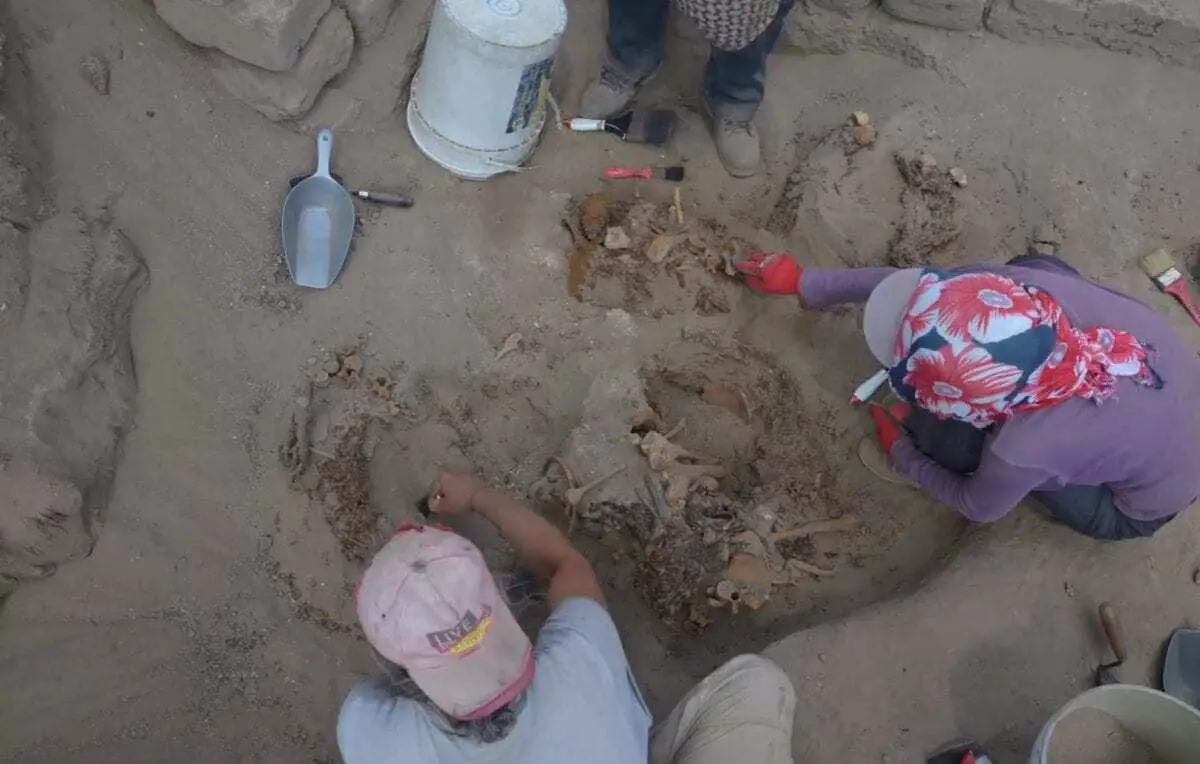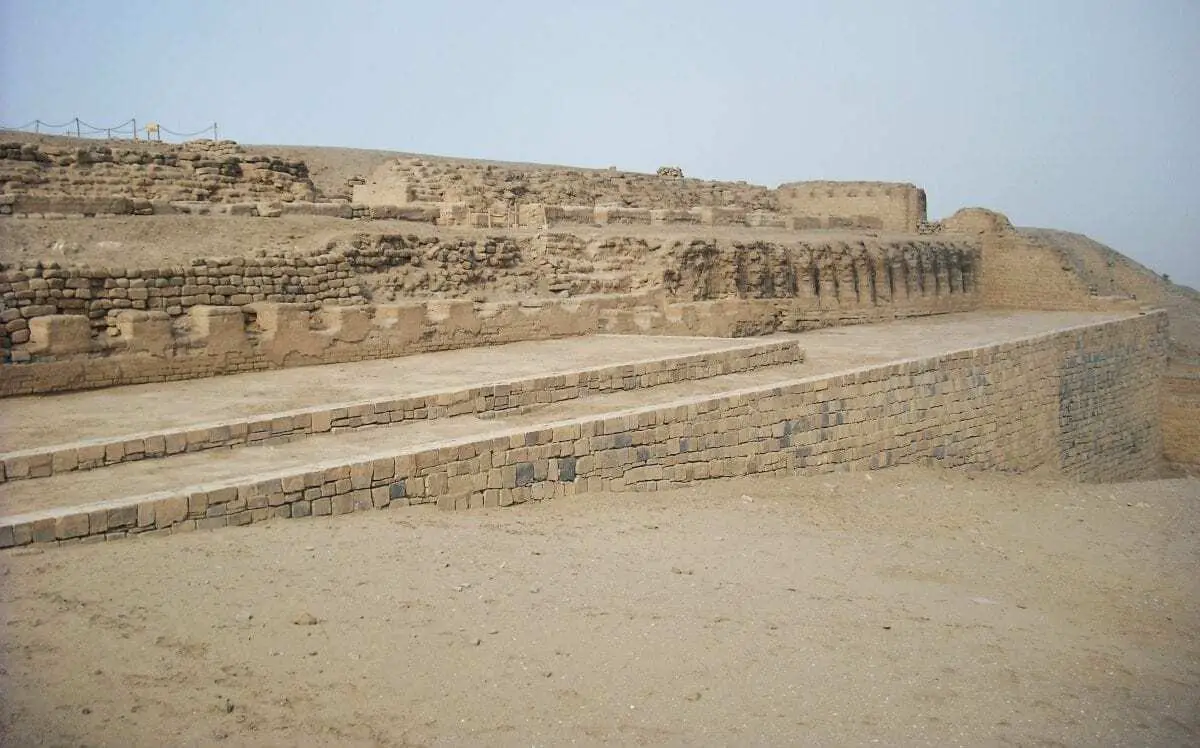A cemetery dating back over 1000 years has recently been discovered at the legendary site of Pachacamac, on the Pacific coast of Peru.
The project is exploring a new area of this enormous site, and found a cluster of burials in foetal positions, wrapped in numerous layers of plant materials, nets and textiles.
“These burials were interred in groups” says Professor Peter Eeckhout (Université libre de Bruxelles, ULB) – director of the Ychsma Project – “interred in deep pits sunk into the sand, accompanied with ceramics and other offerings, then covered with wood and rushwork roofs”.
The cultural remains have been studied by archaeologists, while the mummies were assessed by the physical anthropologists, headed by Dr. Lawrence Owens (Birkbeck, UCLondon; UNISA). “These chaps were in a bit of a state, unfortunately for them, but fortunately for us” he laughs. “Most of the people at the site had hard lives, with various fractures, bad backs, bad hips…but the individuals from this cemetery show a higher than usual concentration of tuberculosis, syphilis and really serious bone breaks that would have had major impacts on their lives.

Still, the fact that most of these are healed – and that disease sufferers survived for a long time – suggests that they were being cared for, and that even in the sites’ early history people felt a duty of care towards those less fortunate than themselves”. The team has also used CT to explore unusual mummies, including one made almost solely from vegetal fibres. “This is different from what we are used to, and may represent an older tradition”, he added.
“All these mummies were disturbed by the construction of a large building directly above the cemetery, dating to the Incas’ arrival in the late 15th century”, says project co-director Milton Lujan Davila, “although the patterns are far from random…almost as if the bundles have been deliberately targeted”. The consistent absence of skulls and other elements may be connected to the Incas’ religious beliefs.
“Ancestor relationships were fundamental to ancient Andeans” concludes Professor Eeckhout, “but while the Inca seemed to have revered their own dead, they had no relationship with these more ancient individuals and destroyed them…yet seem to have taken parts of them away. Why? We don’t know…but we are still looking for them!” he smiled.
Libre de Bruxelles, Université
Header Image – Pachacamac – Credit : Charles Gadbois





